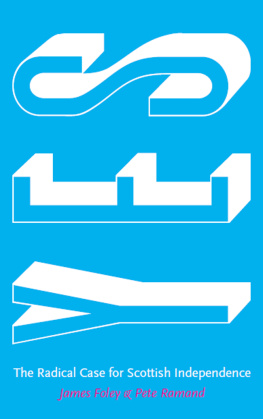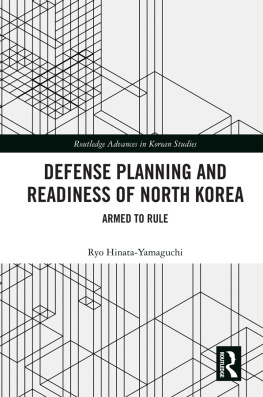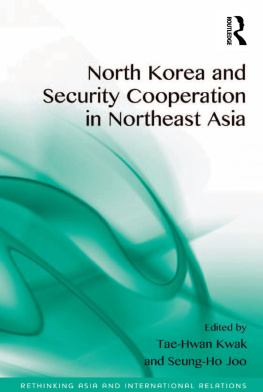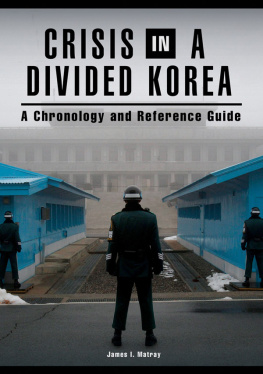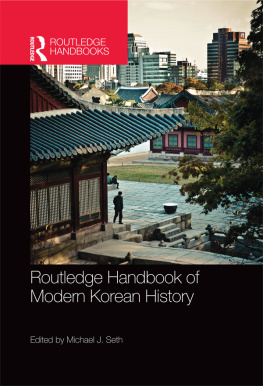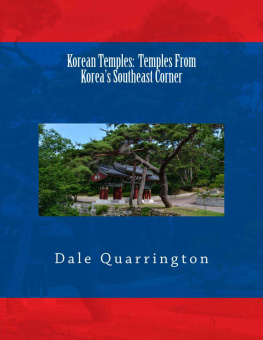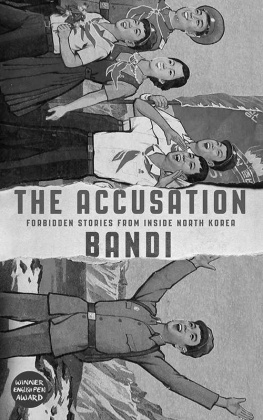
Koreas Divided Families
The divided families problem is the most serious humanitarian issue facing North and South Korea in their difficult and painful path towards rapprochement. Involving hundreds of thousands of first-generation divided family members, the vast majority of whom have not seen their relatives since the Korean War, it is, given the advanced ages of those it most directly concerns, the most urgent and pressing of the many aspects of Koreas long and painful divide. As such, the problem of separated families in Korea is intrinsically connected to the greater issue of human rights on the Korean Peninsula today. However, despite the importance of the issue to Koreas future, surprisingly little serious academic work exists on the subject, in either English or Korean.
This new study, based on research conducted by the author in South Korea, including interviews conducted in summer 2001 with Korean families who benefited from the most recent exchanges to be briefly and temporarily reunited with their loved ones, addresses the many issues surrounding the divided families problem, and highlights its vital importance in the path towards Korean rapprochement.
James A. Foley is a teaching fellow at the Centre for Korean Studies, School of East Asian Studies, University of Sheffield. His main area of interest is the problem of Koreas division and reunification, and in particular, the humanitarian aspects of the Korean divide.
Koreas Divided Families
Fifty years of separation
James A. Foley
First published 2003
by RoutledgeCurzon
11 New Fetter Lane, London EC4P 4EE
Simultaneously published in the USA and Canada
by RoutledgeCurzon
29 West 35th Street, New York, NY 10001
This edition published in the Taylor & Francis e-Library, 2003.
RoutledgeCurzon is an imprint of the Taylor & Francis Group
2003 James A. Foley
All rights reserved. No part of this book may be reprinted or reproduced or utilised in any form or by any electronic, mechanical, or other means, now known or hereafter invented, including photocopying and recording, or in any information storage or retrieval system, without permission in writing from the publishers.
British Library Cataloguing in Publication Data
A catalogue record for this book is available from the British Library
Library of Congress Cataloging in Publication Data
Foley, James A. (James Alexander), 1957
Koreas divided families : fifty years of separation / James A. Foley.
p. cm.
Includes bibliographical references and index.
1. FamilyKorea. 2. War and familyKorea. 3. Partition, TerritorialSocial aspects. 4. KoreaHistoryPartition, 1945. 5. Korean reunification question (1945 ) 6. Separation (Psychology)Korea. 7. Human rightsKorea. I. Title.
HQ682.5 .F65 2003
306.8509519dc21
2002068259
ISBN 0-203-21773-X Master e-book ISBN
ISBN 0-203-27337-0 (Adobe eReader Format)
ISBN 0415297389 (Print Edition)
This book is dedicated to all of Koreas divided families North and South in the hope that it may play some small role in bringing an end to their long and unjust separation from their loved ones.
Contents
Plates
Maps
Tables
Acknowledgements
First, I would like to thank all the first-generation divided family members who gave their time to the author for personal interviews in 1997 and 2001, and without whose help this book would not have been possible. Next, thanks go to all those at the Korea Foundation for their generous financial support, both during research for the authors PhD thesis and during research for this book. Finally, I would like to thank the Republic of Korea National Red Cross for their wholehearted assistance throughout the project and for allowing me to include their photographs of the 20002001 Divided Families Reunion Programme.
Abbreviations
| CBM | Confidence Building Measures |
| CRDC | Committee for the Return of Displaced Civilians |
| DPRK | Democratic Peoples Republic of Korea (North Korea) |
| DPRKRC | Democratic Peoples Republic of Korea Red Cross |
| IAEA | International Atomic Energy Authority |
| ICRC | International Committee of the Red Cross |
| KCIA | Korean Central Intelligence Agency (South) |
| KDP | Korean Democratic Party |
| KPA | Korean Peoples Army (North) |
| KPG | Korean Provisional Government |
| KPR | Korean Peoples Republic |
| NPT | Nuclear Proliferation Treaty |
| NSL | National Security Law |
| ROK | Republic of Korea (South Korea) |
| ROKA | Republic of Korea Army (South) |
| ROKNRC | Republic of Korea National Red Cross |
| SCNRC | Supreme Council for National Reconstruction |
| TCOG | Trilateral Coordination and Oversight Group |
| TKR | Trans-Korean Railway |
| TSR | Trans-Siberian Railway |
| UNC | United Nations Command |
| UNTCOK | United Nations Temporary Commission on Korea |
| USAMGIK | United States Army Military Government in Korea |
| WMD | Weapons of Mass Destruction |
Introduction
This book attempts to provide for the reader a clear and detailed understanding of one of Koreas most urgent and pressing humanitarian problems that of Koreas countless divided families. The divided families are those Koreans still separated from their family members by Koreas division into two rival, ideologically opposed regimes, the subsequent Korean War of 19501953, and ultimately by the failure of Koreas leaders to create a context in which they could be reunited with their loved ones. While the majority of such families live in Korea itself, divided family members are also to be found wherever Koreans have settled to form communities. Koreas modern diaspora has seen Koreans leave their native peninsula to build lives for themselves and their families in all the far-flung corners of the globe.
In the history of divided countries, Koreas division is perhaps the most bitter and intractable. In the years since the redrawing of many of the worlds political boundaries after the Second World War, other divided countries such as Germany and Vietnam have been reunited, and China and Taiwan have at least improved relations to the point where family members are allowed to exchange correspondence and visit their relatives, whereas relations between the two Koreas are still not much better than at the height of the Cold War, and a resolution to Koreas division, at the time of writing these words, still seems a distant dream. Although arbitrarily divided in 1945 into rival zones of influence by the United States and the Soviet Union, the two principal victors of the Second World War, Koreas partition has been enormously embittered by the creation of two diametrically opposed Korean states in North and South, and a fratricidal civil war, which, rapidly internationalised to involve over 20 countries from five continents, caused enormous loss of life and damage to property throughout the Korean Peninsula.


